Can Gasoline (and Other Fluids) Actually Freeze in Your Car?
Vehicles face extreme high and low temperatures. While most of us worry about overheating, freezing also threatens multiple fluids. The truth is, no two automotive fluids freeze at the same temperature as each carries its own distinct freezing point.
Keep reading to learn whether or not gasoline can actually freeze in your fuel tank. We’ll also look at the freezing points of other car fluids such as motor oil, coolant, and brake fluid.
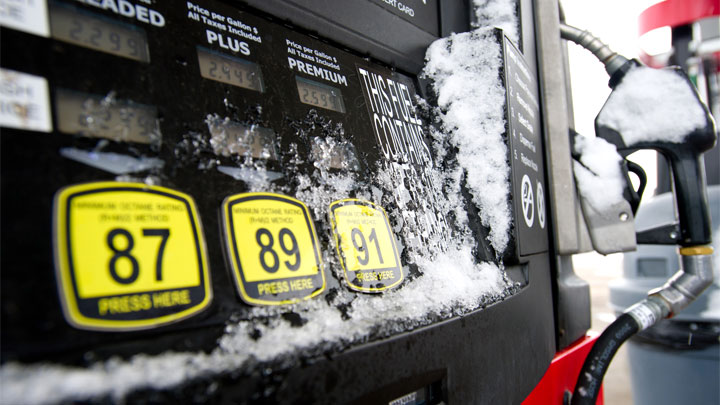
Read Also: Best Brands of Winter/Snow Tires
Can Gasoline Freeze?
Simply put, gasoline can indeed freeze, though few on the planet actually reside in a cold enough climate to witness such an occurrence.
The exact freezing point of gasoline varies extensively and is dependent upon a number of factors, including octane rating. However, most reports indicate that gasoline begins freezing at an average temperature of approximately -100° Fahrenheit.
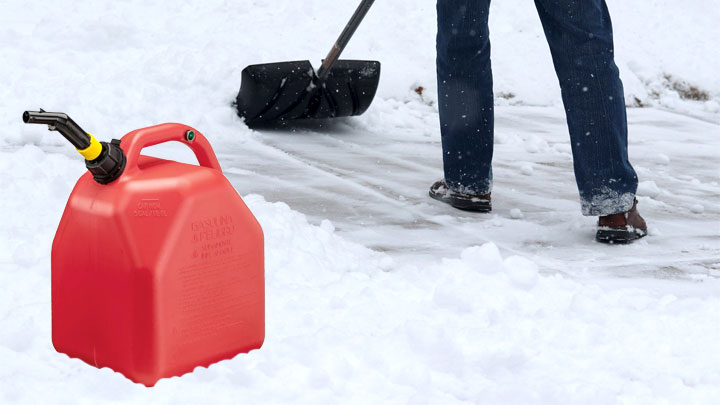
Therefore, it is highly unlikely to find yourself in a position in which a frozen gas tank delays your morning commute. The lone exception would, of course, come in the case of those stationed at one of the several manned research centers on the continent of Antarctica.
Likewise, gasoline contained within a standard gas can is unlikely to freeze, no matter how bitter conditions become.
Can Diesel Freeze?
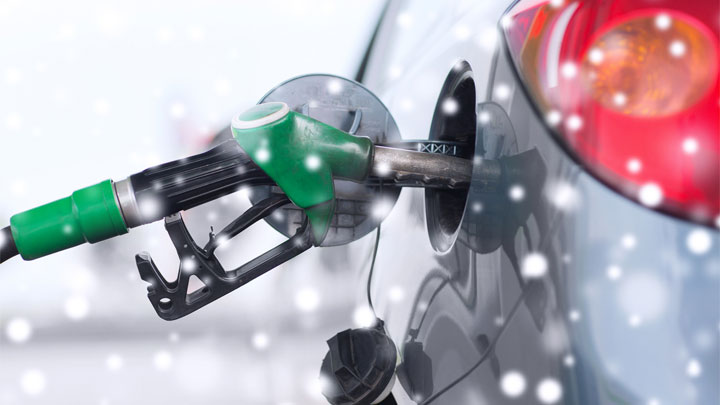
Diesel fuel is far more likely to present issues in frigid weather, than other alternative types of fuel, such as gasoline. However, these issues stem more from “gelling”, than they actually do freezing.
While diesel fuel is largely believed to carry a similar freezing point to gasoline, the paraffin wax found in diesel fuel begins to thicken at approximately 32 to 34 degrees Fahrenheit.
This thickening of the paraffin wax found in diesel fuel is known as “gelling” and can prove quite troublesome. Thickened or gelled fuel can quickly clog fuel filters and fuel lines, leading to an obvious restriction, and suppressed fuel delivery. This problem worsens at temperatures below 15 degrees Fahrenheit.
Can Motor Oil Freeze?
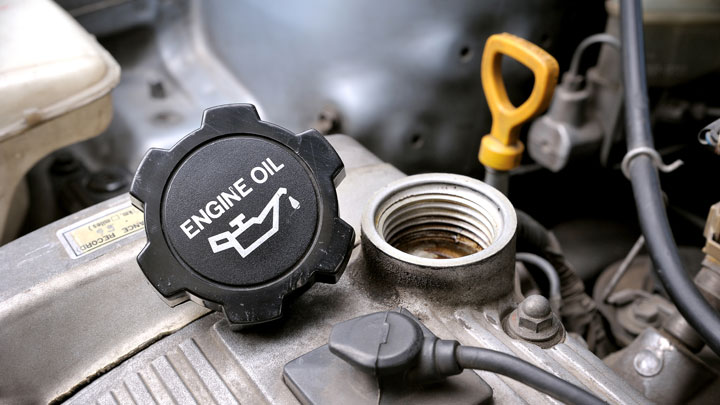
Motor oil does not technically freeze, even in the coldest of climates. This is due to the fact that engine oil is a petroleum product.
Instead of freezing, motor oil becomes thicker, or more viscous, as it cools. This, however, can also be a matter of concern for motorists who reside in more northern climates, where winter temperatures can plunge to nearly 0° Fahrenheit.
Every engine is designed for use with a particular weight of motor oil. This oil is typically specified for use within a temperature range. In the most frigid of temperatures, engine oil can thicken to the point of reducing flow through bearing and other critical components, even causing accelerated wear.
For this reason, it is important to consult your vehicle’s owner’s manual when selecting the correct engine oil for use in colder climates.
Can Brake Fluid Freeze?
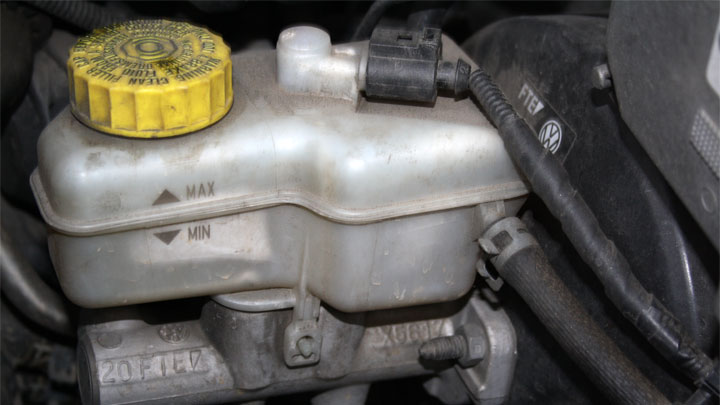
Like engine oil, brake fluid is incapable of truly freezing. Brake fluid, in the most technical sense, is an oil and therefore does not freeze. Instead, brake fluid can gel or coagulate in extremely cold temperatures. However, this seldom leads to any noticeable operational issues. While a vehicle’s brake pedal might feel stiff during the first couple of applications, any fluid within a car’s brake lines will quickly be heated to acceptable temperatures.
In the bulk of cases, basic brake fluid begins to thicken and gel at temperatures of -30° Fahrenheit or below. However, many of today’s additive-rich brake fluids resist gelling to temperatures of approximately -45° Fahrenheit.
Related: Common Brake Problems in Winter
Can Antifreeze Freeze?
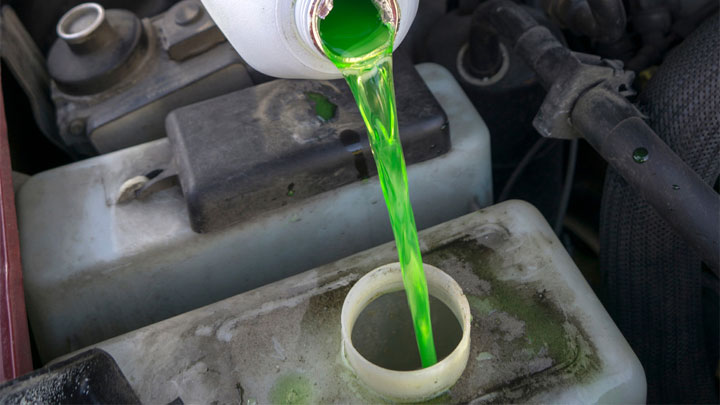
Contrary to popular belief, antifreeze (coolant) actually can freeze. However, temperatures must reach an extremely cold threshold for this to occur.
Most types of antifreeze are mixed to a 50/50 ratio (50% water/ 50% antifreeze), which provides freeze protection down to temperatures of -35° to -50° Fahrenheit. The exact threshold of protection can be verified through the use of an antifreeze tester.
If a vehicle’s antifreeze were to freeze, in most cases, resulting engine damage would be quite severe. While most engines feature freeze-plugs to minimize such damage, the cracking of an engine’s block or cylinder heads is not uncommon.
Can Transmission Fluid Freeze?
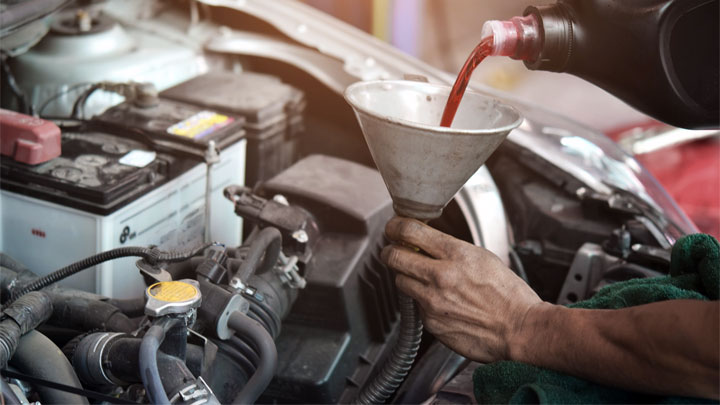
Not unlike brake fluid or power steering fluid, transmission fluid is classified as an oil and therefore cannot freeze solid as would be the case with water.
Instead, transmission fluid thickens in colder weather, at times presenting flow and pressure-related issues. Nonetheless, it must be extremely cold (approximately 0° Fahrenheit or below) for this coagulating effect to take place.
If extreme cold is encountered, one might notice that a vehicle’s shifts are delayed or are noticeably harsher than normal. However, such symptoms should subside within the first couple of miles, upon beginning your commute.
Can Power Steering Fluid Freeze?
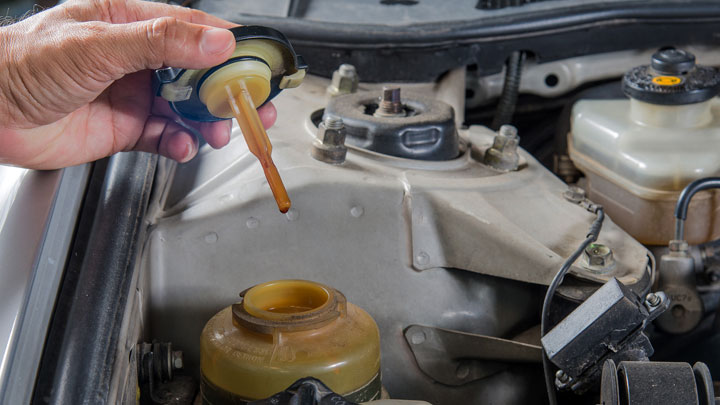
Power steering fluid is classified as an oil or petroleum-based product. Therefore, power steering fluid is incapable of freezing in the typical sense. Instead, this fluid thickens, to an extent that directly correlates to the severity of the cold at hand.
The colder the ambient temperature, the thicker a vehicle’s power steering fluid becomes. However, any water contamination within the power steering system can indeed lead to isolated freezing within a system’s lines.
Overly-thick power steering fluid, such as that created by extremely cold conditions, often proves less efficient at minimizing metal-to-metal component wear.
As such, a power steering pump operated in extremely cold temperatures is often noticeably noisier than it would be when operating at standard temperatures.
Can Windshield Washer Fluid Freeze?
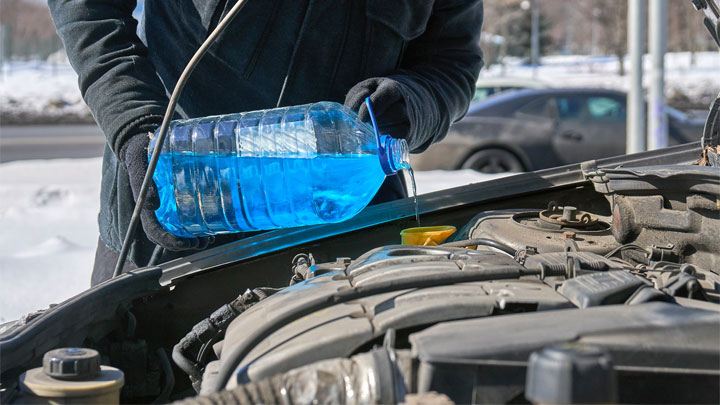
Windshield washer fluid can certainly freeze if ambient temperatures drop below a certain threshold. However, the point at which windshield washer fluid freezes is directly dependent upon the exact additive package that is included in a particular product.
Like antifreeze, windshield washer fluid is typically rated to withstand freezing down to a set temperature, which varies from one product to the next.
For instance, the popular Rain-X All Season is rated down to 0° Fahrenheit while Prestone’s De-Icer Washer Fluid works down to -27° Fahrenheit. However, a product like Prestone Bug Wash is only rated to 32° Fahrenheit.
The point is, pay attention to what the freeze rating is when shopping for windshield washer fluids and make sure it’s compatible with your area.
See Also: Why Is There Frost On the Inside of My Windshield?
If a vehicle’s windshield washer fluid were to freeze, one would likely find themselves burdened with a busted washer fluid reservoir and consequently, no windshield washer fluid spraying out. This comes as a result of expansion that occurs when washer fluid freezes and reaches a solid state.
What Vehicle Problems Can Extreme Cold Weather Cause?
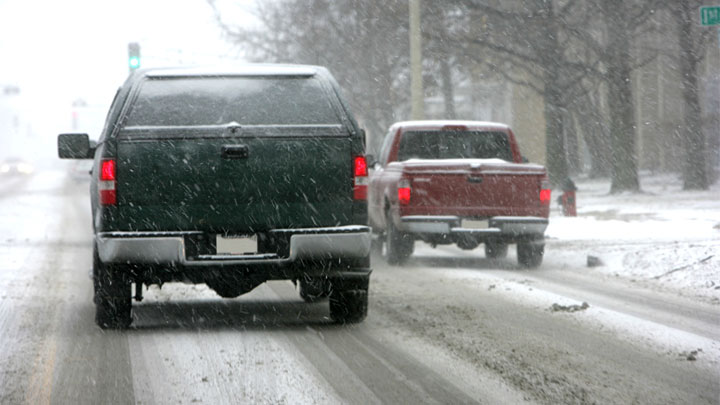
Cold weather has also been known to cause a number of additional vehicle problems, which range in severity from mildly irritating to quite troubling in nature. The following are some of the most common of these issues.
Battery Problems
Bitter cold weather has been known to wreak havoc on a vehicle’s battery, thus presenting a chance of becoming stranded.
Cold ambient temperatures place a much greater strain on a vehicle during starting and tend to be the final nail in the coffin for most aging batteries.
In any event, one is advised to check both the age and health of their vehicle’s battery, before the cold of winter arrives.
Read Also: Detached Garage vs Carport (Which to Choose?)
Tire Pressure Light
All vehicles produced and sold within the United States are now required by law to feature a tire pressure monitoring system (TPMS). This system records, monitors, and relays the tire pressure at each wheel end of a vehicle in real-time.
During the winter, decreasing temperatures often cause a slight decrease in tire pressure, thus illuminating a vehicle’s TPMS light. If this occurs, simply add a couple of pounds of air to each tire, and be on your way.
Tires at different pressures will rotate at slightly different speeds. When the system notices too big of a difference between wheel speeds, the tire pressure light will be triggered.
While you won't be shown the actual PSI for the underinflated tire in your dash like traditional TPMS, you'll save money if have more than one set of wheels since additional costly TPMS sensors won't be necessary.
See Also: Direct vs Indirect TPMS
Cold-Water Leaks
In many cases, the extreme cold can bring about previously undiscovered coolant leaks. These leaks are known most commonly as “cold-water leaks”, and can be aggravating, to say the least.
Cold water leaks occur due to repeated thermal expansion and contraction of both clamps and seals. These disturbances typically produce leaks that might otherwise have gone unnoticed.
- P0480 Code (Symptoms, Causes, and How to Fix) - Apr 19, 2024
- Car Temperature Gauge Stopped Working? (Here’s Why) - Apr 15, 2024
- Ignition Coil vs Coil Pack (What’s the Difference?) - Apr 8, 2024
